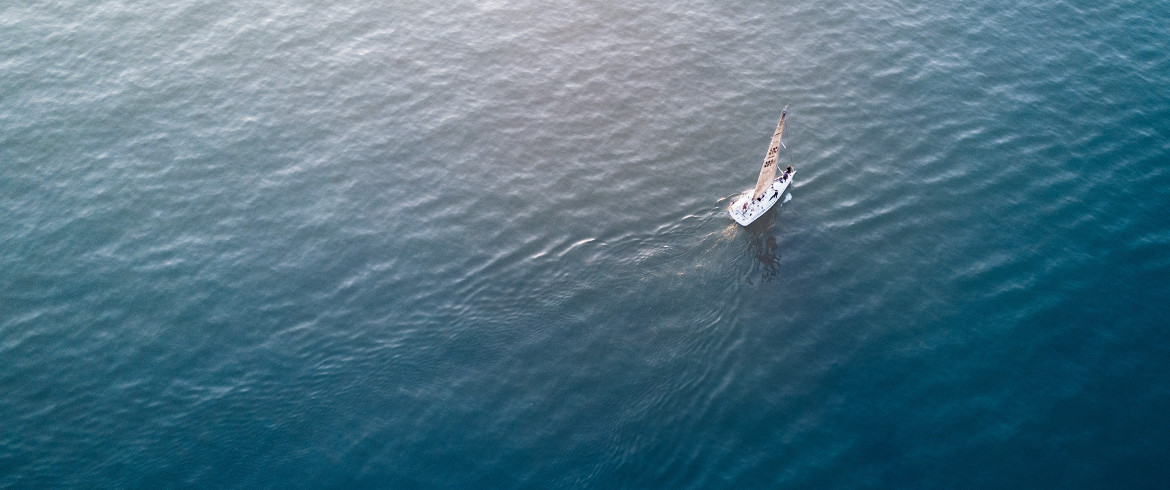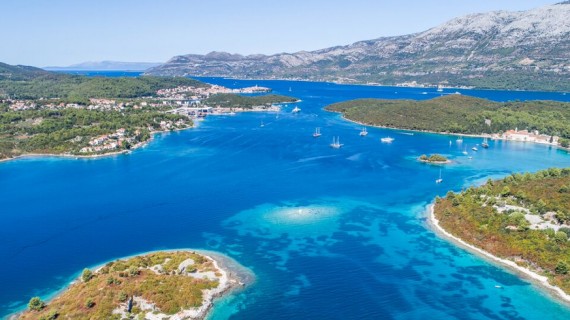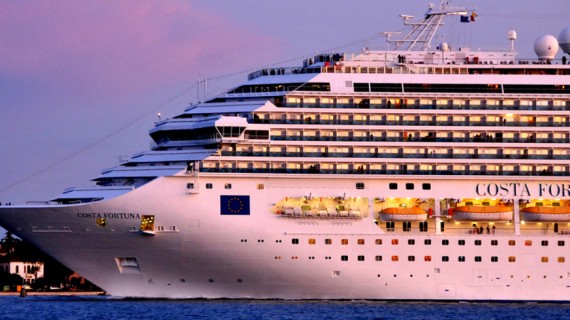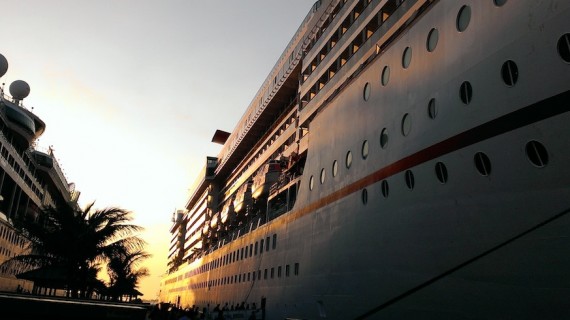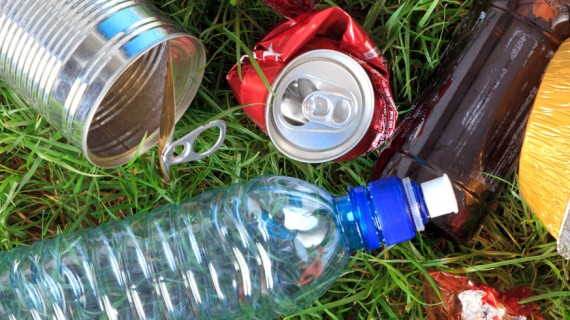Looking forward to leaving dry land behind and going for an adventure with your boat? Here are 10 rules to follow in order to make your boat trip eco-friendly and environmentally sound.
When it’s time to take a break and spend some day relaxing, there are people who’d rather leave dry land and be cradled by the sweet moving of waves. Oceans, seas, lakes, and every place is perfect to take your boat and get away from the city chaos, spending some time in the quiet and harmony of water. However, let’s all remember that a boat trip can also be dangerous for the environment, and can be considered a substantial source of pollution, just think about the environmental impact of cruise ships.
Let’s find out which measures to take if you want to make your boat trip more sustainable and considerate of nature’s well-being.
10 eco-suggestions for your boat trip
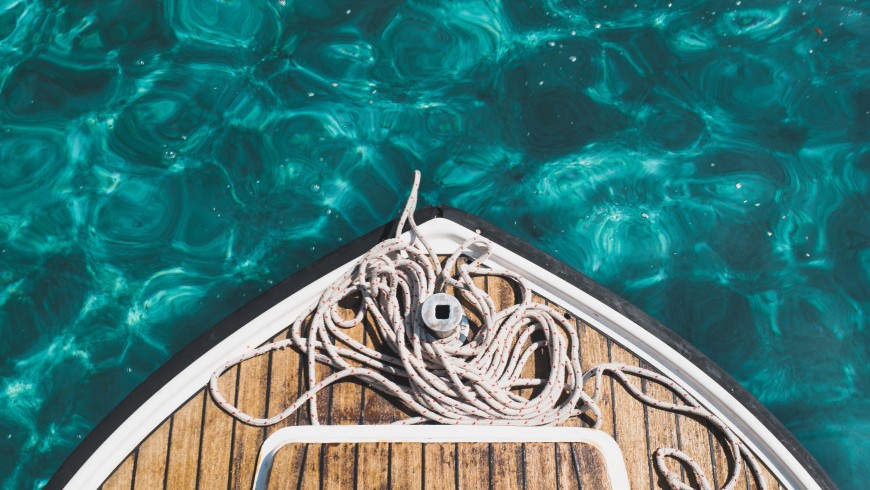
1. For your boat trip, choose green means of travel
Sailing boats and electric boats are two valid solutions to make your boat trip more sustainable. In fact, they simply use wind and solar energy to make the boat move: in this way, you can avoid useless pollution, feel more connected to nature, and dissociate yourself completely from the city’s hustle and bustle.
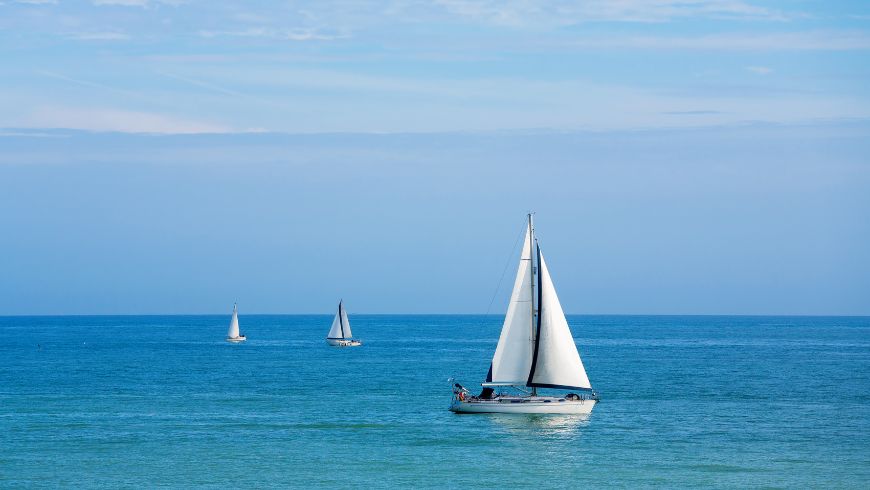
Finally, even boats can be built and can function using renewable resources and clean energy, which won’t affect the marine environment in any way. Electric boats are also quite silent compared to the traditional ones, therefore you will also avoid noise pollution!
2. Avoid pollutants’ spills
If you have no other option than a motorboat, remember that losses of pollutants, such as gas and oil, are one of the worst crimes you can commit towards the marine environment. They are not just extremely dangerous for aquatic fauna and flora, but they are also particularly difficult to clean up. Therefore, as soon as you spot any loss of substances in water, it is highly recommended that you notify it immediately so that you will be able to take measures in time.
Furthermore… Oil leakage in water do not only affect fish and big marine mammals but also a large portion of birds that feed through water. The pollutant penetrates in the plumage and decreases its thermal insulation, increasing the possibility of hypothermia and making these birds unable to swim or fly.
Therefore, you must remember to:
- fuel your boat when you are at the dock, not while moving on water;
- check how much gasoline your tank can contain in order to avoid filling it excessively;
- check that there are no spills or fractures in the tank and jerrycans before leaving
3. Be careful with your sewage during your boat trip
When leaving for a long boat trip, it is clever to consider all the possibilities and needs one might have. For example, where and how to get rid of human waste in the correct way. In fact, throwing untreated sewage in water is normally illegal (within 3 miles of the shore), therefore there are other “greener” ways to face the problem:
- There are some devices, called MSD (Marine Sanitation Devices), which are composed by a toilet attached to a holding tank, which can be emptied in certain facilities for the treatment of sewage;
- Some types of MSD instead, are actually able to treat the sewage onboard and release it in water;
- Last but not least, some people decide to go for composting toilets, meaning devices that can transform human waste into compost, which will be used again as fertilizer: through the anaerobic action of some bacteria, dangerous and polluting microorganisms are eliminated from the sewage.
4. Think ahead before leaving for your boat trip
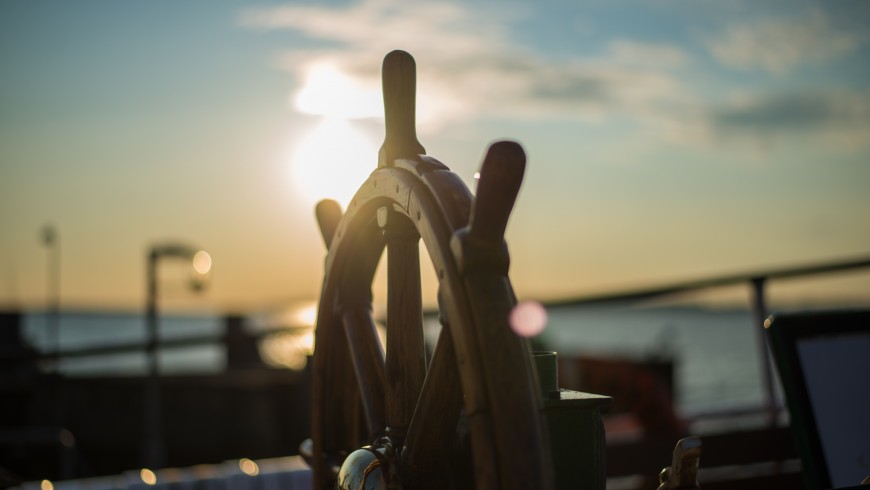
Before leaving, it might be essential to perform some actions that will come in handy once you are on the boat. Sometimes, having a forward-looking strategy might actually be the solution to all your problems, as it allows you to take on your boat trip in a safe way and halves the possibility of bumping into unpleasant situations.
For example, why don’t you…
- check if the boat is already damaged.
- make sure that the bilges and propeller are clean and working (like the rest of the boat).
- fill up the tank before leaving the dock?
- check if the motor oil has been contaminated in any way.
Obviously these are not the only suggestions to consider in order to safeguard the environment and your boat, but they are definitely a good starting point.
5. Avoid greywater leakage
Along with blackwater coming from human waste, there is also what we call greywater, meaning untreated water coming from sinks, showers, bathtubs, and other domestic devices, such as dishwashers and washing machines. Generally, these waters contain products of industrial and chemical origin, such as body soap and detergents, which in turn, contain highly damaging substances for the marine environment.
For this reason, we suggest washing and cleaning in onshore facilities, using showerheads with a low-flow but most importantly, choosing eco-friendly soaps and products!
6. Dispose of your garbage in the right way
Tossing your garbage and trash in the water is perhaps one of the most reprehensible and horrible things you can do during your boat trip. Garbage does not only harm the beauty of the ocean but also its health: products such as plastics, which is not biodegradable, are particularly dangerous, as with the passing of time they keep being divided into smaller and smaller parts following a process of photodegradation (they can reach molecular dimensions). These plastic particles behave in nature in the same exact way as plancton does, so that they end up being ingested by animals, leading to the introduction of plastics in the acquatic ecosystem’s food chain.
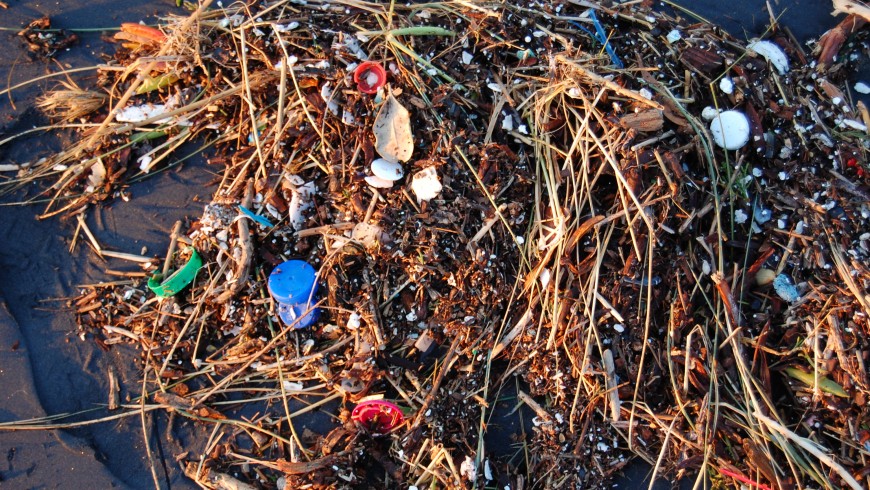
One of the most tragic examples of garbage disposal in water is the Pacific Trash Vortex, also known as plastic island, a giant accumulation of trash that floats on the Pacific, million tonnes of industrial waste, especially plastics, which formed due to ocean currents.
Nevertheless, preventing this horror is not a difficult thing: just make sure to have the right recycling bins but most importantly, never ever ever consider watering your own junkyard.
7. Remeber to clean your boat with green products
As strange as it might sound, using inappropriate products when cleaning during your boat trip, can be a significant source of pollution: the use of chemical products can indeed form clouds and spills of pollutants, that will go directly in the water or in the air.
If you have to clean your boat, it might not even be necessary to use detergents, but you can simply use huge tanks of fresh water, a few sponges, and a load of goodwill. However, if you wish to do things right and use proper soap, there are many green and eco-friendly alternatives to traditional detergents, perfect for cleaning your boat!
8. Avoid copper bottom-paint
The bottom part of the boat is often covered by a protective layer, which is used to prevent the fouling of microorganisms during your boat trip. This kind of painting contains a high percentage of copper oxide, a compound, that is useful to prevent the growth of unwanted bacteria on the bottom of your boat, but it can also be destructive for the sea’s fauna and flora, and even deadly for some species.
Even though copper oxide is a good technique to prevent bacteria from spreading, this does not mean that it cannot be replaced by other elements which, unlike copper, do not have a bad influence of the marine environment. Choosing an alternative painting is therefore the solution.
9. Choose the right boat for your trip
Many boats are supplied with a two-stroke engine, a type of internal combustion engine, which completes a power cycle with two strokes (up and down movements) of the piston during only one crankshaft revolution. Unfortunately, these engines use an enormous quantity of fuel, a percentage of which remains unutilized and is directly released into water, causing a polluting outcome.
For this reason, when possible (each boat needs to have the right engine according to its size), it is better to switch to a four-stroke engine, an engine that is easier to use and less wasteful.
However, sailing is definitely the best solution, as it only exploits the energy of the wind!
10. Pay attention to your sunscreen
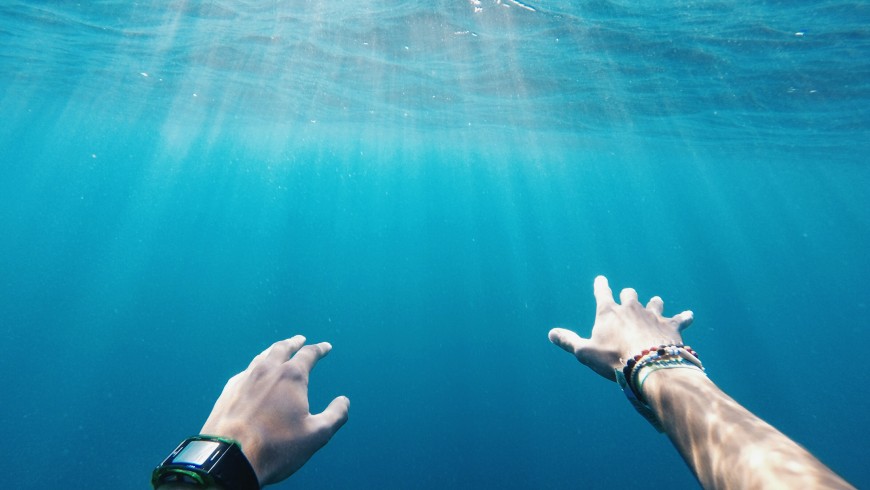
Another small but useful suggestion: although it may look pointless, even choosing your sunscreen might have consequences on the environment. In fact, sunscreen comes directly in contact with water when we dive or swim.
Many lotions contain substances such as oxybenzone, highly dangerous for the ocean, and are also considered partially responsible for corals’ bleaching and their death. Therefore it is always important to check the ingredients and possibly turn towards greener alternatives.
If you love boat trips, you can make your experience more sustainable and feel closer to nature. There is no better way to sail than doing it while being aware of the marine ecosystems’ fragility and while taking care of the environment to keep it safe and sound.
Cover photo by Ivan Bandura on Unsplash
